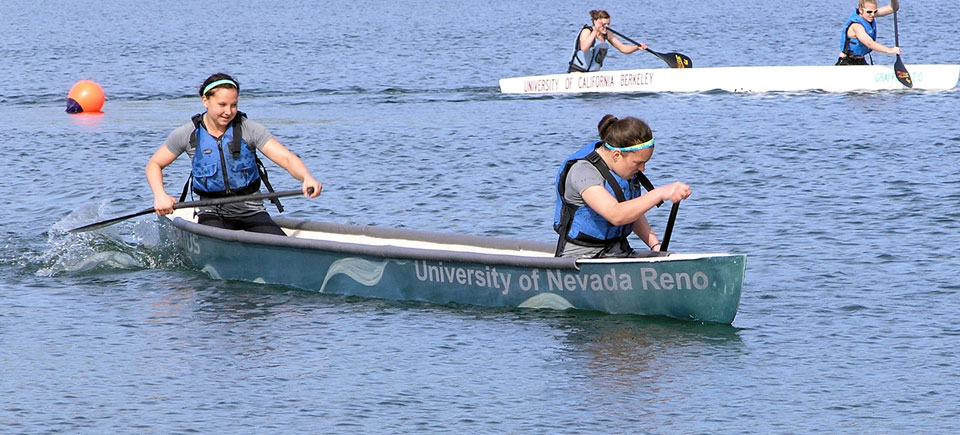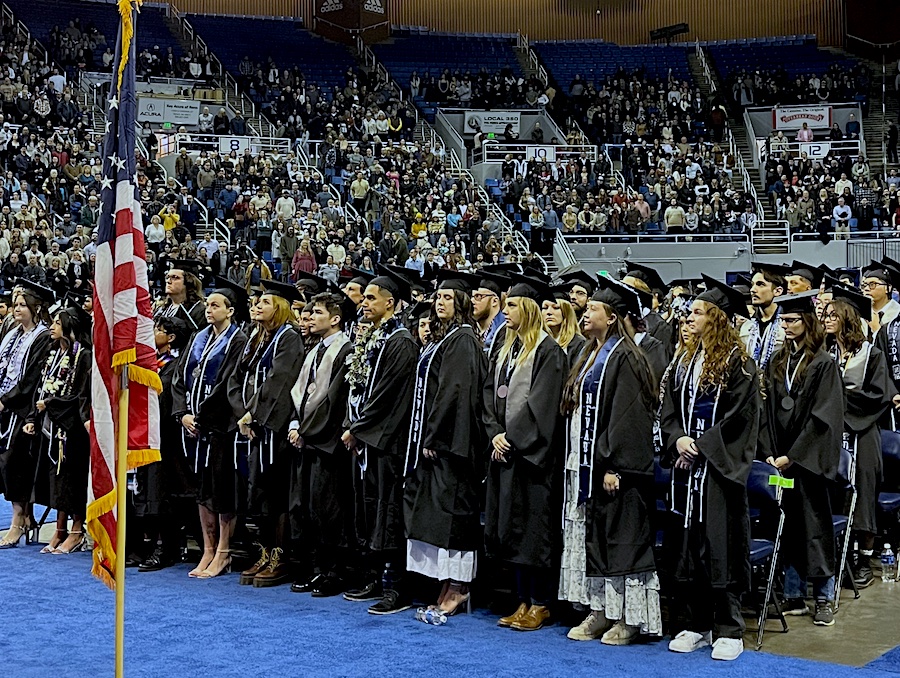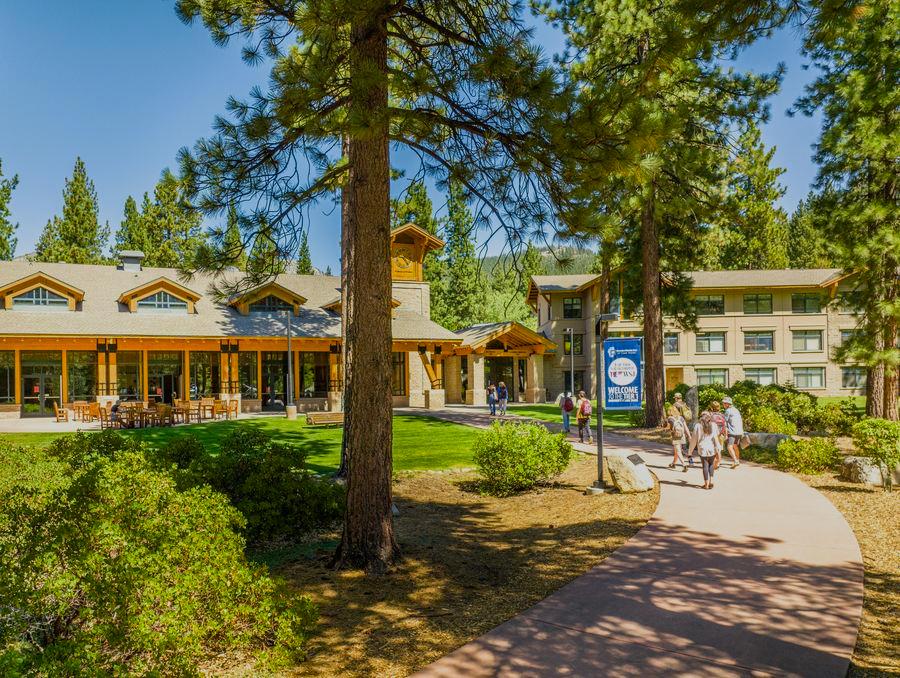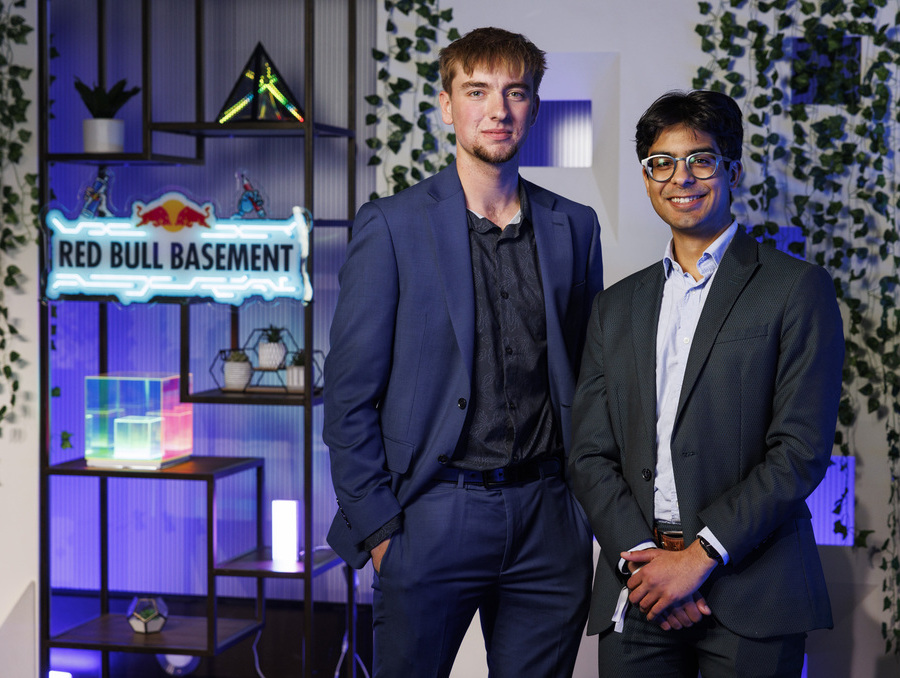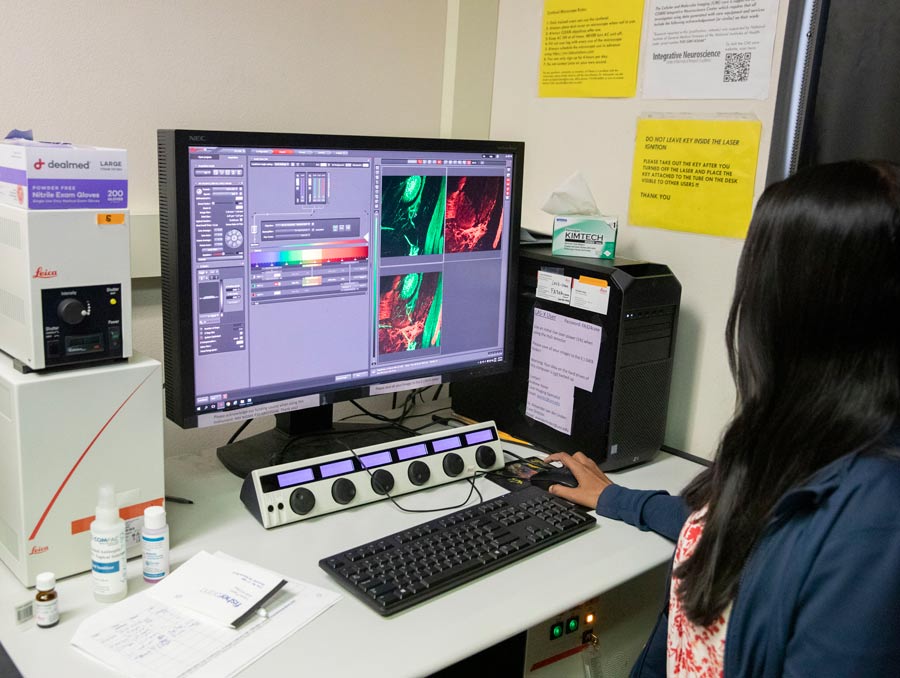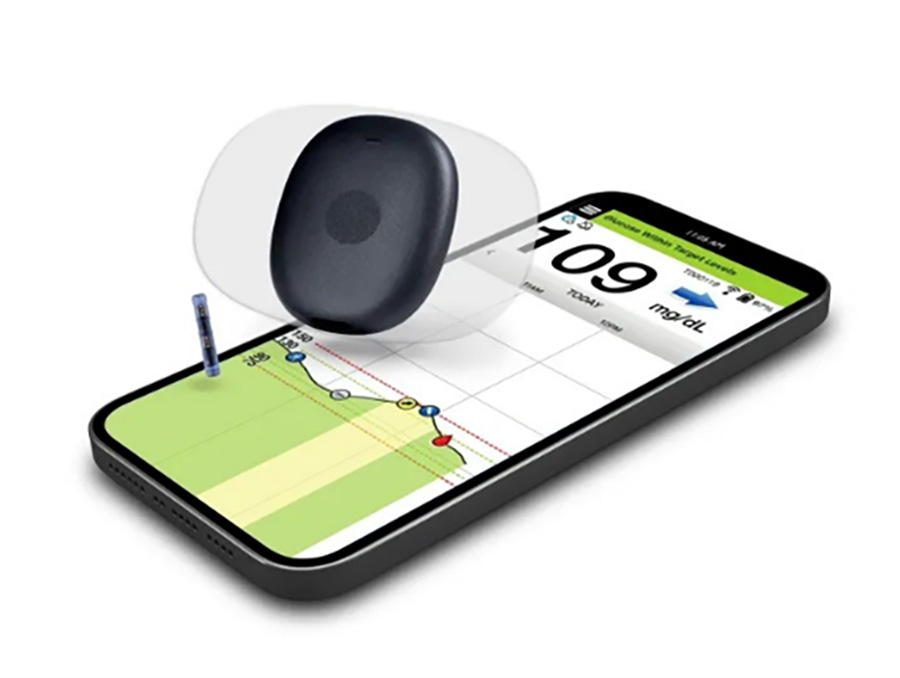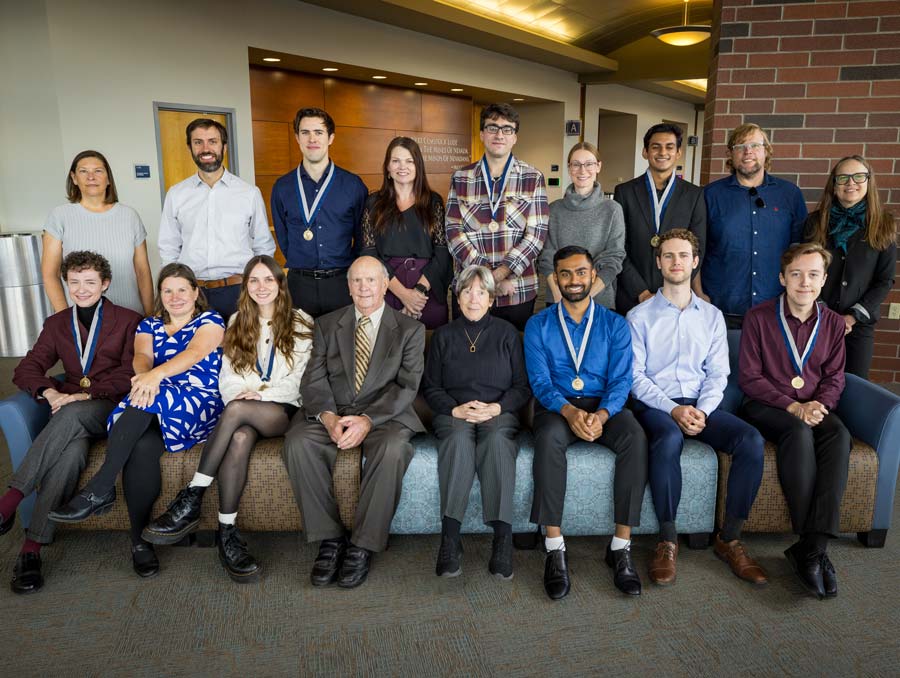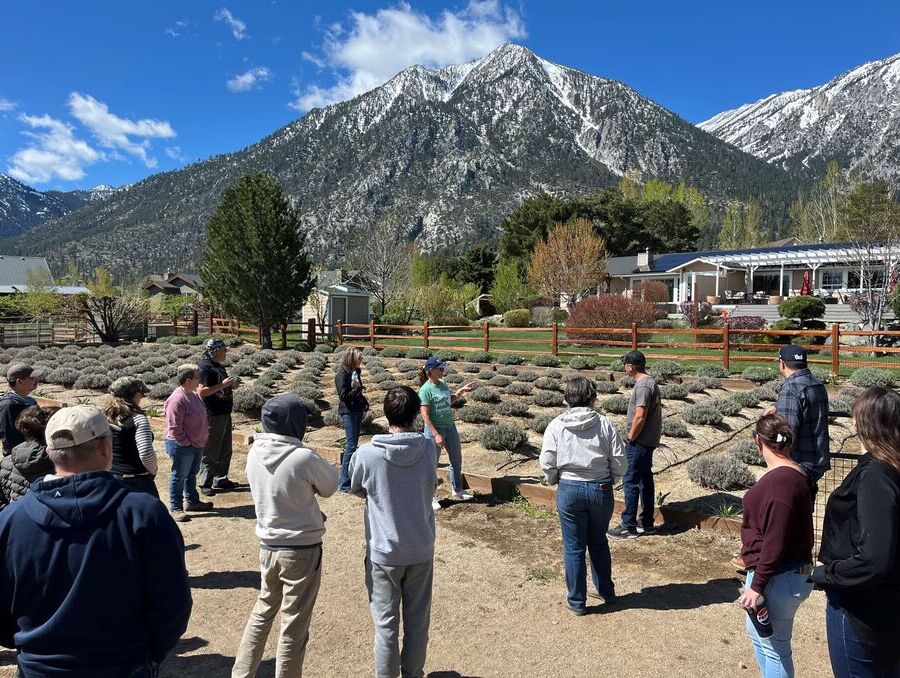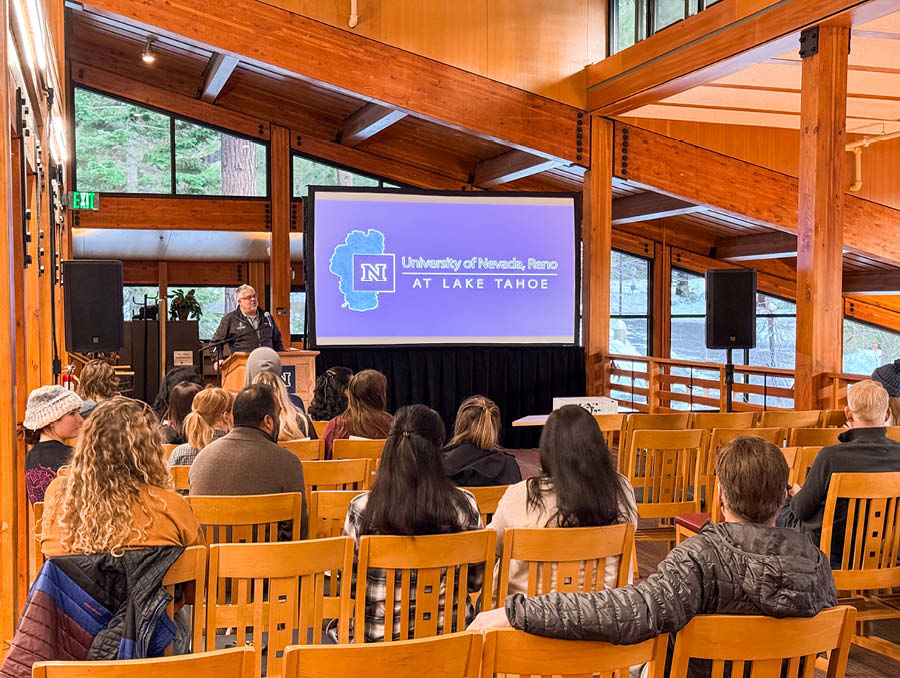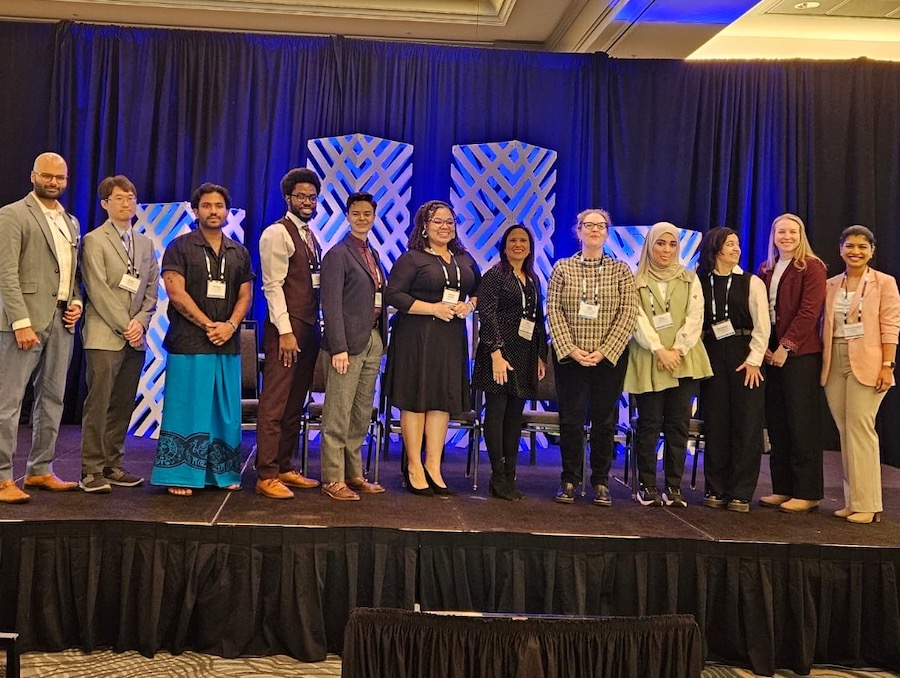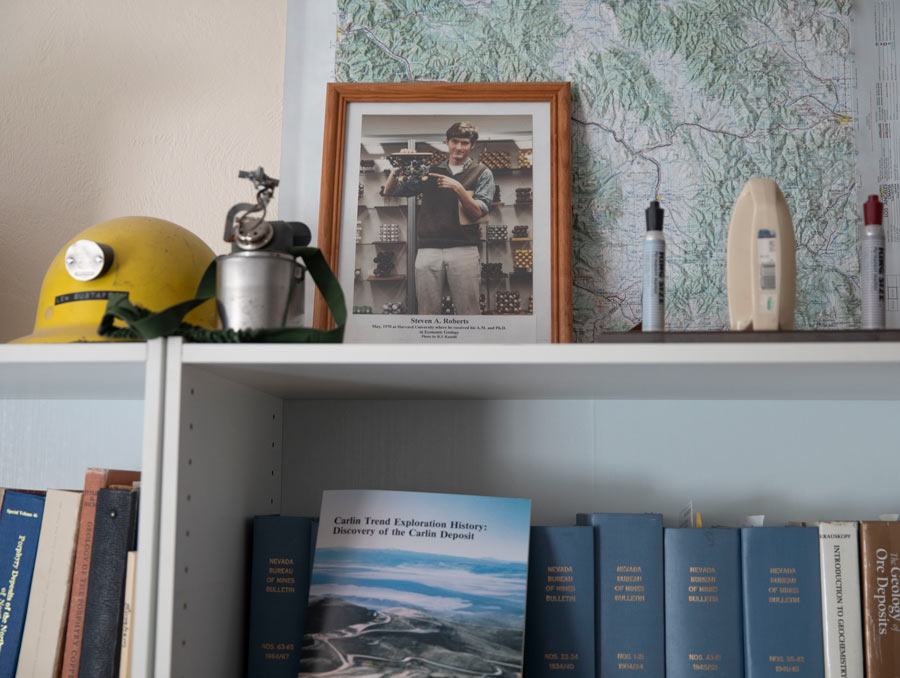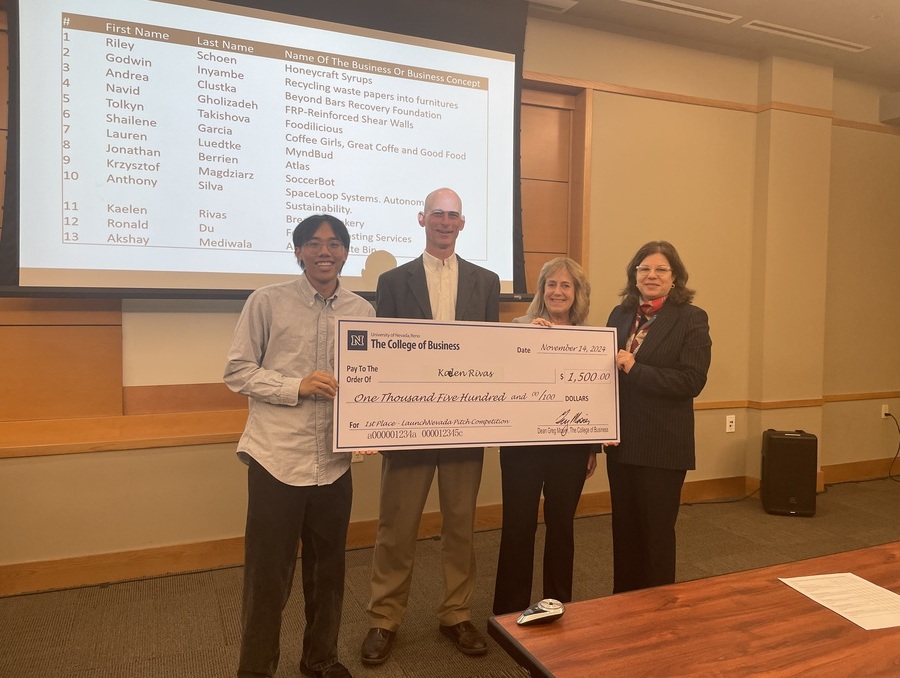Using significant science and plenty of muscle, the University of Nevada, Reno's concrete canoe competition team beat out teams from eight northern California universities to earn a seventh trip in seven years to the national competition.
The civil and environmental engineering students won the design portion of the engineering contest, and paddled their 160-pound concrete canoe to victory on Friday, March 23, in the annual regional competition held this year in Berkeley, Calif.
"This achievement is great, and the consistency of success over the years is even more amazing," Manos Maragakis, dean of the College of Engineering said. "It speaks well of the quality of our students, year after year being dominant in a highly competitive region, including U.C. Berkeley, and then going to nationals and getting top finishes. "
The American Society of Civil Engineers Mid-Pac Region Conference event is more than building and paddling a 22-foot canoe made out of concrete - a six-month undertaking - it includes equal scores for design, preparing and presenting a technical paper and final product. The Nevada team placed first in four of the canoe races, and second in the fifth, as well as first place in the design paper and second place in the oral presentation portion of the competition.
"This year we designed our canoe to optimize straight-line speed and tracking," Emma Crossman, Project Manager, said. "It's 22-feet from bow to stern and has a beam (or width) of 26 inches. It has a sharp keel at the stern (the back) for tracking."
The team's canoe, named Ducimus (Latin for "we lead, we guide"), was 15 pounds heavier than last year's 145-pound canoe in which they placed fifth at nationals. The canoe was the lightest, by 40 pounds, of any other in this year's competition. The lightest Wolf Pack canoe was 140 pounds in 2010 when they placed second in nationals. In the past, teams from other schools have built and raced in canoes reported to weigh as much as 750 pounds. The aggregates used in the concrete mixture play an important role in the strength and weight of the concrete and the Nevada team spent innumerable hours perfecting the mixture, building on past year's experience. The mixture must also be pliable for shaping and able to be spread to the half-inch thickness of the hull.
"We designed and tested 45 mixtures before finding the one we liked best," Mitzi Olsen, mix design manager and paddler, said. "We tested different aggregates, and other ingredients. We started with the mixture from the year before and worked to improve on it. We are very happy with the final mix."
The entire project started in September and nearly 5500 worker-hours were spent in the making of the canoe, including engineering design, plus innumerable hours of presentation preparation.
"I am proud to have led such a great team and believe that we have a strong shot at a national championship this year," Crossman said.
"Their success is directly proportional to the student's many hours working on the project, including practicing rowing four times a week - even in the middle of winter, perfecting their report and presentation and, of course, countless hours on the canoe construction and display," the team's faculty advisor and civil and environmental engineering professor David Sanders said.
The competition was close with the University of California, Berkeley taking second place and California State University at Sacramento taking third. Berkeley took first in the presentation and U.C. Davis won the final product portion. The Wolf Pack team is now seeking their second national title in their seventh national appearance. As part of the competition, the University of Nevada also won the spirit award.
"The department is proud of this victory," Amy Childress, chair of the Department of Civil and Environmental Engineering, said. "It represents not only the hard work of the students but also the strong support of our alumni and community."
Other team managers are: Chris Duarte, Analysis Manager; Jon Lau, Paddling Manager; Casey Sylvester, Construction Manager and Alicia Veach, Graphics Manager. Design paper writers and presenters are Crossman and Olsen.
Paddlers are Craig Jenkins, Jon Lau, Dustin Pefley, Justin Kunert, Lisa Bryant, Mitzi Olsen, Alicia Veach and Emma Crossman.
The University of Nevada, Reno has represented the Mid-Pacific Conference six times at the national level with all top-10 finishes (2006, sixth place; 2007, third place; 2008, first place; 2009, fifth place; 2010, second place and 2011, fifth place).
The competition included teams from California State University, Chico; California State University, Fresno; California State University, Sacramento; San Francisco State University; San Jose State University; Santa Clara University; U.C. Berkeley, U.C. Davis and the University of Nevada, Reno.
The concrete canoe competition provides students with a practical application of the engineering principles they learn in the classroom, along with important team and project management skills they will need in their careers. The event challenges the students' knowledge, creativity and stamina, while showcasing the versatility and durability of concrete as a building material.
"The concrete canoe, water treatment and steel bridge competitions (all part of the Mid-Pac region competition) are all the types of projects I need to learn the concepts (of engineering)," Dustin Pefley, canoe team member and ASCE student chapter president, said. "The ASCE has provided me with a future in the world of engineering."
Pefley said that these competitions are valuable in preparing students for the workforce after college, and especially ASCE has "opened up opportunities to build networking connections and potential future job connections. It's our goal to leave behind a lasting legacy to help students transition from college to the workforce as well as learn through construction projects and real competition," he said.
All team members who participate directly in the competition must be members of the American Society of Civil Engineers. The team attracts students from mechanical engineering, chemical engineering, electrical engineering, political science and secondary education, in addition to those from civil and environmental engineering.
The 25th annual ASCE National Concrete Canoe Competition is being hosted by the University of Nevada, Reno at the Sparks Marina and on the University's campus June 14-16. There will be two dozen teams participating, representing 18 ASCE regions from around the country.
For more information about the team visit their website.

The 25th annual ASCE National Concrete Canoe Competition is being hosted by the University of Nevada, Reno at the Sparks Marina and on the University's campus June 14-16.
